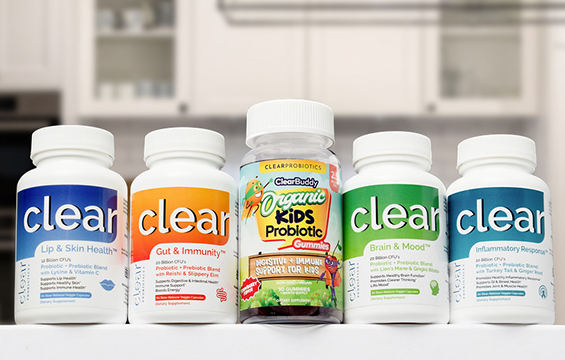Table of Contents
ToggleIntroduction
Ever wondered why, in the bustling world of gut health, the buzz is all about probiotics?
Well, brace yourself for a fragrant twist! Amidst the trillions of bacteria working tirelessly in our tummies, probiotics stand tall as the heroes of digestion. But here comes the cheeky bit:
Do probiotics make your poop stink? Before you scrunch up your nose, this whiffy conundrum might just be the key to unlocking deeper mysteries of our body’s inner workings.
Dive in with me, and let’s uncover the scented secrets of gut health together!

The Fascinating World of Gut Health and The Role of Probiotics
Let’s begin by marveling at the wonderland that is our gut.
Beyond its primary function of breaking down food into usable nutrients, it houses a vast community of microorganisms working together in perfect harmony (most of the time).
These microbes form an ecosystem known as the microbiota or microbiome – a dynamic landscape where countless species coexist in an intricate dance.
Enter probiotics – nature’s superheroes that come to rescue this delicate balance when it wavers.
Probiotics are live microorganisms that confer health benefits when administered in adequate amounts.
Lactobacillus and Bifidobacterium strains are among their most celebrated members, wielding immense power to enhance digestion and strengthen our immune defenses.
But here’s the thing: as much as we adore these beneficial bugs, there are times when their presence can disrupt the serenity of our porcelain sanctuary, leading to an unexpected consequence – foul-smelling stools.

Do Probiotics Make Your Poop Stink?
While probiotics play a crucial role in promoting overall gut health, their impact on stool odor is a topic that often flies under the radar of scientific inquiry.
The culprits behind this olfactory disturbance lie in the metabolic processes of certain bacteria strains present in probiotic supplements.
These strains produce sulfur compounds such as hydrogen sulfide and methyl mercaptan during fermentation – a natural byproduct that contributes to that pungent smell we associate with fecal matter.
So yes, my friends, do not be surprised if your bathroom visits become more fragrant after starting a probiotic regimen.
Understanding Probiotics
Lactobacillus and Bifidobacterium Strains
Do probiotics make your poop stink? Well, let’s start by unraveling the wonders of Lactobacillus and Bifidobacterium strains, the unsung heroes fighting battles in our guts.
These mighty warriors are among the most well-known and extensively studied probiotics.
Lactobacillus strains, such as L. acidophilus and L. rhamnosus, have been hailed for their ability to restore harmony in our digestive tracts.
They colonize our intestines, crowding out harmful bacteria and promoting a friendly environment for beneficial microorganisms to flourish.
These superhero strains have been associated with improved digestion, enhanced immunity, and even mental well-being!
So while they may not be able to leap tall buildings in a single bound like comic book heroes, these probiotic powerhouses can certainly work wonders for your gut health.

Saccharomyces boulardii
Diving deeper into the realm of probiotics that may cause your stools to unleash an unpleasant odor is Saccharomyces boulardii.
This remarkable fungus has garnered attention due to its unique ability to survive stomach acid and compete against harmful pathogens lurking in your gut.
Don’t be deceived by its name; Saccharomyces boulardii means serious business when it comes to combating diarrhea caused by Clostridium difficile infection or antibiotic use.
Well, in the case of Saccharomyces boulardii, it’s not so much about making your poop stink but rather dealing with the aftermath of rebalancing your gut microbiota.
So while this yeast may not be aromatic in itself, its presence during the restoration process can result in temporary changes to the smell of your stool.
Mechanisms of Action
Restoring the Balance: Probiotics as Microbial Warriors in Our Gut Ecosystem
Probiotics work their magic by restoring harmony within our intricate gut ecosystem.
These tiny warriors compete for resources and adhesion sites, preventing pathogenic invaders from gaining a foothold.
By crowding out harmful microorganisms like a medieval army storming castle walls, probiotics optimize our microbial balance and promote overall gut health.
Any temporary changes in stool smell can be attributed to the rebalancing process—a small price to pay for a flourishing intestinal landscape.
So consider that foul odor a testament to the ongoing battle between good and evil taking place within you.
Enhancing Digestion: Breaking Down Complex Molecules with Precision
These microscopic miracle workers possess enzymes that break down complex molecules like carbohydrates, proteins, and fats into more manageable forms.
This enzymatic firepower aids our bodies in extracting vital nutrients from food efficiently.
So while certain strains of probiotics may cause momentary pungency when answering nature’s call, their contribution to improved digestion far outweighs any temporary olfactory inconvenience.
Think of it as an aromatic reminder that these beneficial microbes are hard at work inside you—transforming your food into the energy and nourishment your body craves.
The Odorous Side Effect: Foul-Smelling Stools
The Role of Bacteria in Stool Odor Production
When it comes to doing probiotics make your poop stink? we can attribute much of the blame to our gut-dwelling bacteria.
These tiny organisms play a crucial role in our digestive processes, breaking down food particles and extracting nutrients.
However, it’s not all sunshine and roses in the world of gut microflora; some bacteria produce compounds that give stools their distinct aroma.
First on the list of offenders are sulfur compounds.
These little troublemakers are responsible for that pungent smell that can clear a room in seconds flat.
When proteins from our diet are broken down by gut bacteria, they release hydrogen sulfide and other sulfur-containing gases as byproducts.
Additionally, we must acknowledge the aromatic duo responsible for fecal fragrance: indole and skatole.
These two compounds are products of bacterial metabolism during digestion and fermentation processes occurring within our intestines.
Indole has a strong fecal smell reminiscent of rotten eggs or decayed vegetation while skatole adds its own unique twist with its animalistic odor akin to manure.

How Probiotics Can Help Regulate Bowel Movements
Probiotics have gained popularity for their ability to restore balance in our gut microbiota, aiding digestion and promoting regular bowel movements.
By introducing beneficial strains like Lactobacillus and Bifidobacterium into our gut ecosystem, probiotics help regulate the transit time of food through our intestines.
This may result in more efficient digestion and reduced chances of putrefaction, which can contribute to foul-smelling stools.
Probiotics Producing Gases
While probiotics do offer many benefits, it is important to note that they also participate in fermentation processes within the gut.
During fermentation, gases such as hydrogen and methane are produced as byproducts – and yes, they can contribute to a less-than-pleasant aroma when expelled during bowel movements.
So while probiotics may aid in regulating your digestive system and reducing the likelihood of malodorous stools caused by putrefaction or inefficient digestion, they cannot completely absolve themselves of any responsibility for contributing to the overall scent experience.
The odorous side effect of foul-smelling stools involves various factors including bacteria-produced compounds like sulfur compounds or indole and skatole.
Exploring Factors Influencing Odor Intensity
Diet’s Aromatic Influence on Stool Scent
Among the aromatic culprits that can turn your restroom into an olfactory battleground are cruciferous vegetables.
Don’t get me wrong; I love a good plate of broccoli or Brussels sprouts as much as the next person.
But let’s be honest here – these cruciferous delights can have a double-edged sword effect on your nose.
Cruciferous vegetables contain sulfur compounds that give them their distinctive smell and provide numerous health benefits.
However, when these compounds reach your gut, they’re broken down by bacteria into volatile sulfur gases like hydrogen sulfide – renowned for their rotten egg-like stench.
So, while you may enjoy devouring that plate of greens for its nutritional value and taste, be prepared for the consequences when nature calls. Your nose may not thank you for it later!

Spices and Herbs
The diverse flavors they bring to our dishes can take us on an exotic journey with every bite.
However, let’s not forget that these flavor enhancers also have another trick up their sleeve – they can add fragrance to your stool as well.
Certain spices and herbs contain volatile oils that contribute to odor production during digestion.
For instance, cumin seeds and fenugreek, known for their aromatic properties and used in various cuisines, can lend an intense smell to your stool.
Even the beloved garlic and onions, although deliciously pungent on our plates, can manifest their presence in less desirable ways later on.
So next time you’re savoring those highly seasoned dishes, remember that your olfactory adventure may continue well beyond the dinner table. Brace yourself.
Medications and Supplements That May Affect Stool Smell
The human body is complex, and sometimes it needs a helping hand in the form of medications or supplements.
While these marvels of modern science can work wonders for our health, they occasionally come with some unexpected side effects – including influencing the scent of your stool.
One class of medications notorious for transforming your bathroom experience is antibiotics. These powerful drugs have revolutionized medicine by fighting bacterial infections.
However, when antibiotics wage war against harmful bacteria in your gut, they can inadvertently disrupt the delicate balance of your microbial ecosystem.
This disruption may lead to changes in the composition and odor of your stool – often not for the better.
A Word from HealthyVibe
In conclusion, while certain factors like diet and medications can influence the odor of our stools, probiotics also play a role in this olfactory equation.
Cruciferous vegetables and aromatic spices undeniably affect our digestive system, producing lasting odors.
Nonetheless, the emphasis should be on the importance of overall gut health.
By diversifying our diet with fiber-rich foods, being mindful of aromatic spices, and consulting with healthcare providers about medication effects, we can reap the benefits of probiotics without the accompanying foul scent.
Let’s approach this smelly aspect with humor and appreciation, recognizing it as a fascinating facet of our human experience.
FAQ
1. What role do probiotics play in our gut health?
- Probiotics, which are beneficial live microorganisms, actively enhance our digestion and overall gut well-being when we consume them in the right amounts.
2. Do probiotics directly influence the smell of our stool?
- Yes, specific strains within probiotics produce sulfur compounds during their metabolic processes, which give our fecal matter its distinctive scent.
3. Which probiotic strains stand out for their gut health benefits?
- The strains Lactobacillus and Bifidobacterium, particularly L. acidophilus and L. rhamnosus, are renowned for their digestive and immune-boosting properties.
4. How do our dietary choices impact the aroma of our stools?
- Consuming foods like cruciferous vegetables introduces sulfur compounds that, when digested, amplify stool odor. Moreover, spices and herbs, owing to their volatile oils, can also modify stool fragrance.
5. Are there any medications or supplements that alter stool scent?
- Absolutely, antibiotics, for instance, can reshape the microbial balance in our gut, leading to shifts in both stool composition and aroma.











